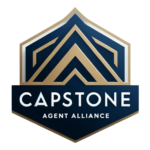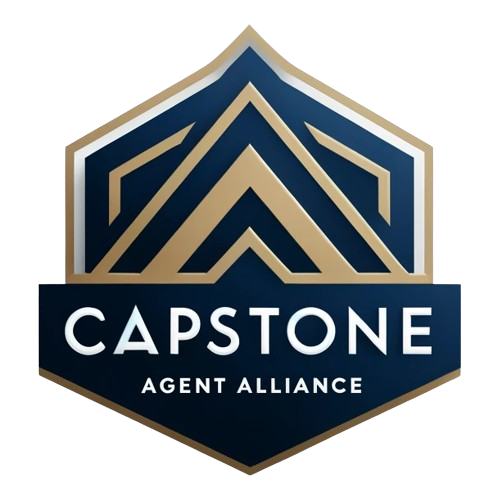Florida has mutual recognition agreements with ten states: Alabama, Arkansas, Connecticut, Georgia, Illinois, Kentucky, Mississippi, Nebraska, Rhode Island, and West Virginia.
If you’re licensed in one of these states, you can apply for a Florida real estate license without completing pre-licensing education. However, you must still pass the Florida law portion of the state exam.
Learn more here: https://www2.myfloridalicense.com/real-estate-commission/mutual-recognition-states/
Timeline: Self-paced
Cost: ≈ $125 (DBPR application + exam fee)
Not in a reciprocal state?
If your state is not on the list, you have two main options:
Hire a Florida Broker of Record (like me!) to register your business immediately and operate under their license.
Work toward your own Florida broker license by completing the following steps:
Take the 63-hour Sales Associate Pre-Licensing Course
Pass the Florida Sales Associate State Exam
Work under a Florida broker for at least 24 months
Complete the 72-hour Broker Pre-Licensing Course
Pass the Florida Broker State Exam
Learn more here: https://www2.myfloridalicense.com/real-estate-commission/
Timeline: 2+ years
Cost: ≈ $900 – $1,600
In Florida, a real estate brokerage can be organized as a corporation, a limited liability company (LLC), a professional association (PA), general partnership, limited liability partnership (LLP), or limited partnership (with only the general partners being licensed brokers).
All “Active” brokers must be listed as an officer, director, partner, member or manager of the business entity. All non-licensed officers are to be listed as “Inactive”. A sales associate may not be an officer, director, member, manager or partner of a licensed Florida real estate company. A sales associate may be a shareholder.
Get started at https://dos.fl.gov/sunbiz/start-business/
Timeline: Varies, usually <1 week
Cost: $125
Can you use a foreign/out-of-state business entity?
Yes, you can. Your foreign business entity must be registered with the FL Division of Corporations with the same requirements mentioned above.
Get started at https://dos.fl.gov/sunbiz/forms/limited-liability-company/#foreignllcforms
Timeline: Varies
Cost: $125
Every real estate brokerage in Florida must have an Employer Identification Number (EIN) issued by the IRS. If you’re using a foreign (out-of-state) entity, you likely already have an EIN and you can continue using it if no new entity is created. If you’re forming a new Florida entity you’ll need to apply for a new EIN.
The EIN is essential for opening a business bank account, filing taxes, and hiring agents or assistants. Even single-member LLCs without employees need one to operate professionally in Florida.
Get an EIN here https://www.irs.gov/businesses/small-businesses-self-employed/get-an-employer-identification-number
Timeline: Usually Instant
Cost: Free
To legally conduct real estate business in Florida, your company must be registered with the DBPR as a real estate entity. Every real estate brokerage must have at least one licensed broker, an EIN, and a physical business address. This address can be a home residence, as long as it complies with local zoning laws, but it cannot be a P.O. Box.
Apply here: https://www2.myfloridalicense.com/re/documents/DBPR_RE_7_Company.pdf
Timeline: <1 week
Cost: $77
Once your Florida brokerage is officially established, the next step is to operationalize it just like any other branch of your existing business. Make sure your office whether physical or virtual, has proper signage that complies with DBPR rules, and consider appointing an office manager to oversee day-to-day operations. Begin recruiting agents who are either already licensed in Florida or eligible for reciprocity, and ensure they’re properly registered under your new brokerage. Much of your existing systems, processes, branding can be transferred over seamlessly. Treat it as an extension of your current office, while adapting to Florida’s specific licensing, advertising, and compliance requirements.
Optional:
In addition to setting up your physical office, signage, and agent onboarding, there are several optional, but highly recommended, steps to help ensure your Florida brokerage runs smoothly and remains compliant:
- Hire a Florida Real Estate Attorney
Laws and practices in Florida may differ from your home state. A local attorney can review your contracts, brokerage policies, and advertising to ensure full compliance with the DBPR and Florida Statutes. - Expand or Secure Florida-Specific E&O Insurance
Check whether your current errors and omissions (E&O) insurance covers activity in Florida. If not, secure a separate policy to protect against liability claims in your new market. - Establish a Transaction Coordinator or Office Manager
Designate someone to oversee compliance, file audits, and transaction timeline, especially if you won’t be physically present at the Florida office. - Open a Florida-Based Business Bank Account
Even if your LLC or corporation is based elsewhere, a Florida bank account helps streamline accounting, escrow management (if applicable), and agent commission payouts. You’re not required to open a Florida-based bank account unless your brokerage maintains escrow or trust funds (like earnest money, security deposits, or rental funds). - Set Up Florida-Specific Marketing and Lead Gen Systems
Customize your CRM, websites, and branding materials for the Florida audience. This can include local IDX feeds, area-specific search filters, and regional SEO content. - Join Local Professional Networks
While Realtor board and MLS membership may not be necessary for commercial or referral-based models, participating in local associations or networking groups can help establish your presence and credibility.
Taking these extra steps can give your Florida branch a strong foundation and allow you to hit the ground running with confidence.


